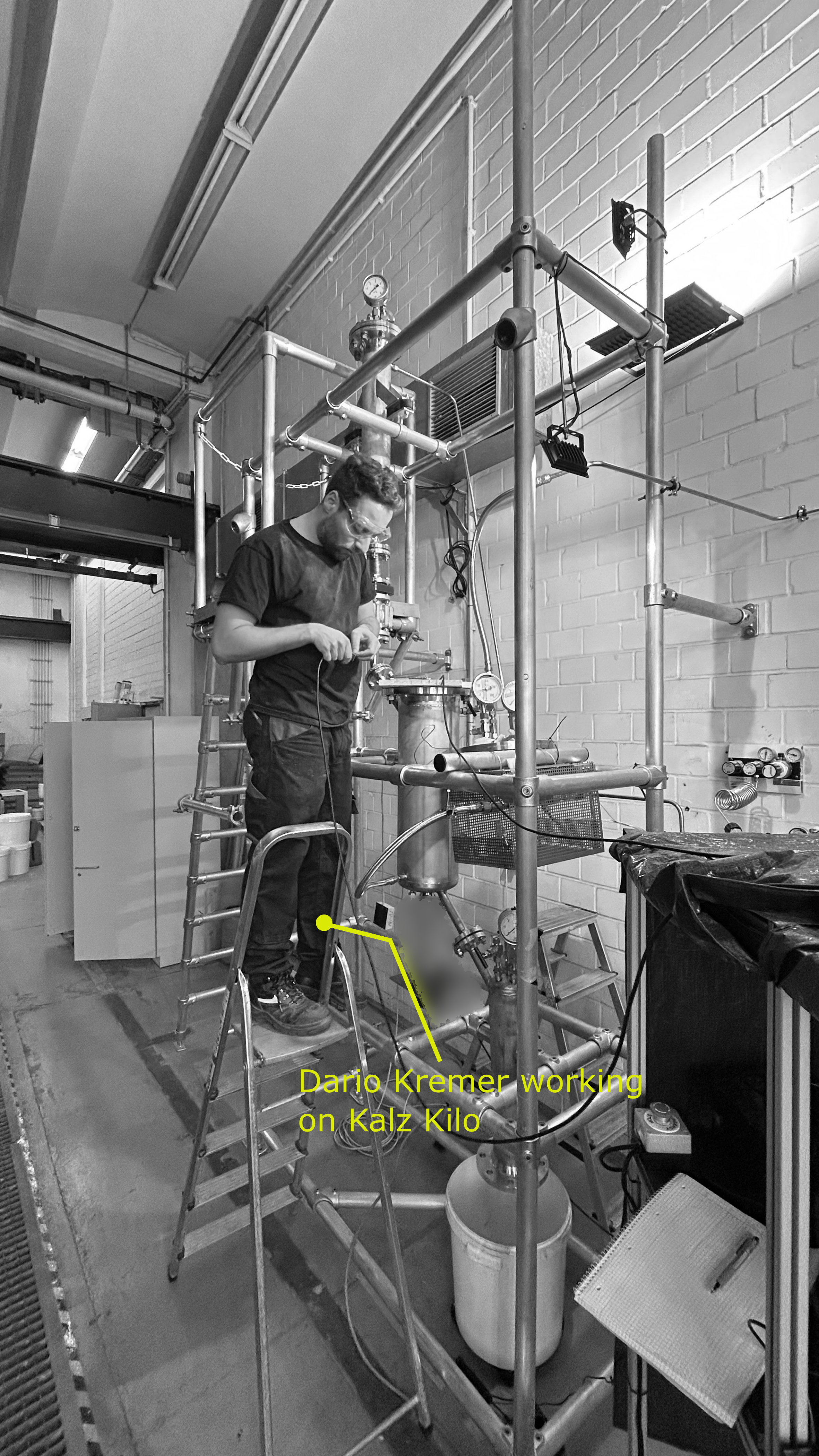
Turning CO2 and industrial waste into sustainable cement, at scale
What we do
At Seq Kalz, we develop a breakthrough technology to remove CO2 from industrial emissions and permanently store it in concrete. Our process uses carbon mineralization to transform captured CO2 into a valuable building material likes SCMs (Supplementary Cementitious Materials). This not only reduces cement’s carbon footprint but also locks away CO2 for good - creating a scalable, cost-effective, and decentralized solution to combat climate change.
Why we need this.
Every year, humanity emits over 37 billion tonnes of CO2 driving global warming and climate instability. To reach net zero by 2050, we don’t just need to cut emissions we also need to remove and permanently store up to 9 billion tonnes of CO2 annually.
Concrete could become the world’s largest human-made carbon sink.
With around 32 billion tonnes of concrete produced annually it is not only the most widely used human-made material, but also a powerful potential carbon sink. By integrating carbon-storing materials like SCMs, aggregates, and fillers, concrete could safely permanently store 2–3 billion tonnes of CO2 every year.
Our Technology
We develop a low-cost technology that produces supplementary cementitious materials (SCMs) and other components of concrete while permanently storing CO2 through carbon mineralization. Our innovative process involves feeding metal-oxide-bearing minerals into a specially designed reactor. The resulting carbonated material is then used as a cementitious material, offering a sustainable solution for carbon sequestration and concrete production.

Aggregates, fillers, and SCMs can all be used to store CO2, with SCMs being our primary focus. SCMs storing CO2 are the future of building materials. As traditional SCMs like blast furnace slag and fly ash become scarce, the cement industry needs new solutions. Carbonated SCMs not only replace clinker but also store CO2, turning emissions into valuable resources. This approach could store up to 600 million tonnes of CO2 annually, supporting net-zero goals and revolutionizing sustainable construction.




